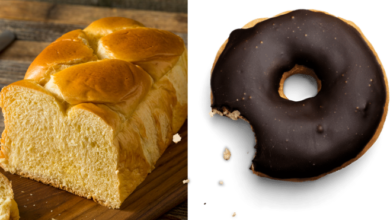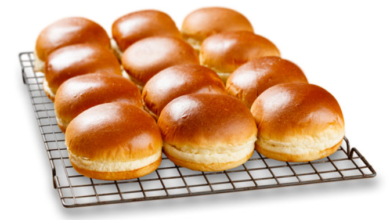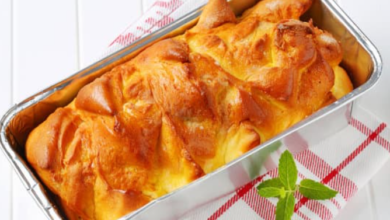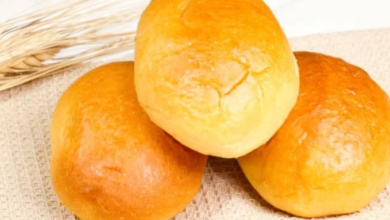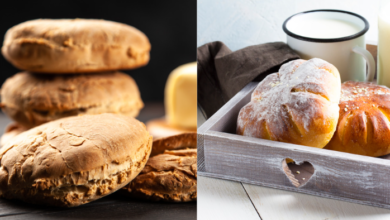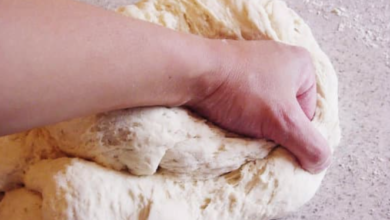Why Did My Brioche Deflate? Find Out Here!

What To Know
- This results in the yeast consuming all the available sugars, leading to a loss of structure and elasticity.
- Too much liquid can make the dough too wet and sticky, while too little liquid can result in a dry, crumbly dough.
- Yes, it is possible to salvage a deflated brioche by shaping it into a different form, such as a cinnamon roll or breadsticks.
Brioche, with its golden-brown crust and fluffy interior, is a culinary masterpiece. However, the joy of baking this delectable bread can be marred by the disappointment of a deflated loaf. Understanding the reasons behind this culinary setback is crucial for aspiring bakers to achieve brioche perfection.
Overproofing
Overproofing occurs when the dough rises for too long. This results in the yeast consuming all the available sugars, leading to a loss of structure and elasticity. The dough becomes weak and unable to support its own weight, causing it to collapse.
Underproofing
Underproofing, on the other hand, happens when the dough does not rise enough. The yeast has insufficient time to produce carbon dioxide gas, resulting in a dense, heavy loaf. The loaf may not rise significantly in the oven and will likely deflate once removed.
Improper Kneading
Insufficient kneading can result in poor gluten development. Gluten is a protein network that provides strength and elasticity to the dough. Without proper kneading, the gluten network will be weak, and the dough will be prone to collapse.
Overheating
Excessive heat can damage the yeast and inhibit its activity. The dough should be kept at a warm temperature to promote yeast growth, but temperatures above 80°F (27°C) can be detrimental.
Insufficient Salt
Salt plays a crucial role in regulating yeast activity and dough strength. Too little salt can result in overproofing, while too much salt can inhibit yeast growth. The ideal salt content for brioche dough is around 1-2%.
Incorrect Hydration
The hydration level of the dough refers to the ratio of flour to liquid. Too much liquid can make the dough too wet and sticky, while too little liquid can result in a dry, crumbly dough. The optimal hydration level for brioche dough is between 65-70%.
Oven Issues
An oven that is too hot or too cold can affect the rise of the brioche. An oven that is too hot can cause the crust to form too quickly, inhibiting the dough from rising fully. Conversely, an oven that is too cold can slow down the yeast activity, resulting in underproofing.
Tips to Prevent Brioche Deflation
- Proof the dough at the right temperature (70-75°F / 21-24°C).
- Time the proofing process carefully to avoid overproofing or underproofing.
- Knead the dough thoroughly to develop strong gluten.
- Keep the dough at a warm temperature during kneading and proofing.
- Add the correct amount of salt to regulate yeast activity.
- Adjust the hydration level of the dough to achieve the desired consistency.
- Calibrate your oven to ensure accurate temperature readings.
Recommendations: Troubleshooting Brioche Deflation
Deflated brioche can be a frustrating experience, but understanding the underlying causes is the key to achieving consistent success. By addressing the issues related to overproofing, underproofing, kneading, temperature, salt, hydration, and oven settings, aspiring bakers can overcome the challenges of brioche deflation and create perfect, fluffy loaves that will delight their taste buds.
What People Want to Know
Q: Can I salvage a deflated brioche?
A: Yes, it is possible to salvage a deflated brioche by shaping it into a different form, such as a cinnamon roll or breadsticks.
Q: How can I prevent brioche from deflating after baking?
A: Allow the brioche to cool completely before slicing or storing it. This will help to prevent the loss of moisture and keep the loaf fluffy.
Q: Why does my brioche have a dense texture?
A: A dense brioche can be caused by overproofing, underkneading, or insufficient hydration. Ensure that the dough is proofed properly, kneaded thoroughly, and has the correct hydration level.
Q: How long should I knead brioche dough?
A: Brioche dough should be kneaded for 10-15 minutes by hand or 5-7 minutes using a stand mixer.
Q: What is the ideal temperature for proofing brioche dough?
A: Brioche dough should be proofed at a temperature between 70-75°F (21-24°C).
